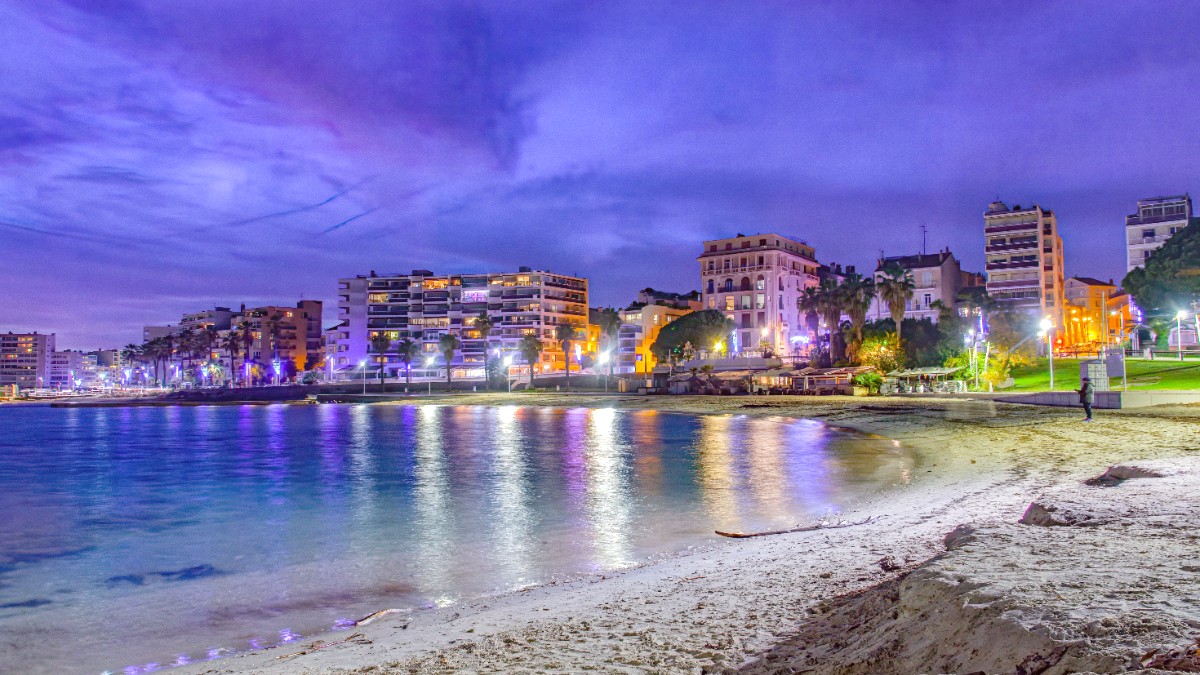
Cote Dazur, France
Summer (June - August): These months bring warm, sunny weather. Daily high temperatures from 25°C to 30°C (77°F to 86°F) are common. On some days, the thermometer climbs above 35°C (95°F). Rainfall is rare during summer, and long periods of sunshine are typical. Humidity generally stays moderate. Warm sea temperatures make swimming enjoyable.
Autumn (September - November): Temperatures gradually cool. September sees average highs around 25°C (77°F), while November cools to about 15°C (59°F). Rainfall grows, with October and November typically being the wettest months. Despite increased precipitation, many days stay bright and pleasant. Humidity levels go up compared to the dry summer.
Toulon's travel seasons each carry distinct characteristics for visitors to consider.
The climate patterns greatly influence crowd levels and pricing, guiding when to plan your trip for specific experiences.
July - August
Best weather for beaches; all services are fully operational.
Very crowded; prices reach their peak; intense heat.
April - June & September - October
Pleasant temperatures; fewer crowds; better value prices.
Sea might be cool for swimming; possibility of more rain.
November - March
Fewest tourists; significantly lower prices; mild temperatures.
Cooler weather; higher chance of rain; some seasonal closures.
For beach and water activities, plan your visit between June and September for the best sea temperatures and sunshine. For hiking and outdoor exploration (e.g., Mont Faron, coastal paths), April, May, early June, September, and October have comfortable temperatures for active pursuits.
Sightseeing and city exploration are excellent in April, May, June, September, and October without the intense summer heat or crowds. For budget travel, consider visiting from November to March for the lowest prices on accommodation and flights.
June - September for warm seas.
April, May, early June, September, October for pleasant temperatures.
April, May, June, September, October to avoid heat and crowds.
November - March for lowest prices.
Occurs in winter/spring; brings clear skies, but strong winds and cooler temperatures.
France is part of the Schengen Area, which streamlines travel for many nationalities.
Citizens of Schengen member states (most EU countries, plus Iceland, Liechtenstein, Norway, Switzerland) do not need a visa to enter France. Travel within the Schengen Area with a national ID card or passport.
When you enter France, specific documents are needed for immigration.
The currency used in France is the Euro (€).
These are approximate ranges and can change based on season and demand. Prices are per night for accommodation and per person for meals.
These are approximate ranges and can change based on season and demand.
Toulon is a safe city for travelers, but knowing local procedures and precautions prepares you for any situation.
Toulon is generally a safe city for tourists. Petty crime, like pickpocketing and bag snatching, can occur. Remain vigilant in crowded tourist areas, on public transport, and in busy markets.
France has a high-quality public healthcare system. Hospitals and pharmacies are well-equipped. Emergency services are readily available.
Universal European Emergency: 112 (all services). Police: 17. Fire: 18. Medical Emergency (SAMU): 15.
Pharmacies (Pharmacie) have flashing green cross signs; pharmacists offer minor ailment advice. Toulon's main hospital: Hôpital Sainte Musse.
Tap water in Toulon is safe for drinking. Restaurants follow high hygiene standards. Wash market produce before eating.